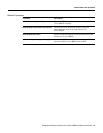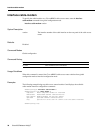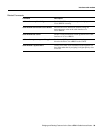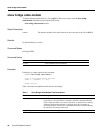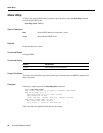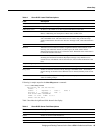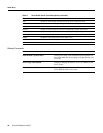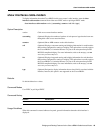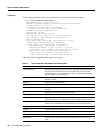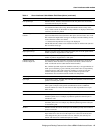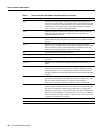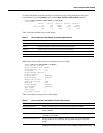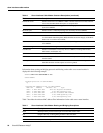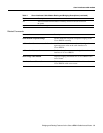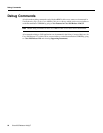
show interfaces cable-modem
48
Cisco IOS Release 12.0(5)T
CRC Number of cyclic redundancy checksums generated by the originating LAN
station or far-end device that do not match the checksum calculated from the data
received. On a LAN, this usually indicates noise or transmission problems on the
LAN interface or the LAN bus itself. A high number of CRCs is usually the
result of collisions or a station transmitting bad data.
frame Number of packets received incorrectly, having a CRC error and a noninteger
number of octets. On a LAN, this is usually the result of collisions or a
malfunctioning Ethernet device.
overrun Number of times the receiver hardware was unable to hand received data to a
hardware buffer because the input rate exceeded the receiver’s ability to handle
the data.
ignored Number of received packets ignored by the interface because the interface
hardware ran low on internal buffers. These buffers are different from the system
buffers mentioned previously in the buffer description. Broadcast storms and
bursts of noise can cause the ignored count to be increased.
abort Number of packets whose receipt was aborted.
packets output Total number of messages transmitted by the system.
bytes Total number of bytes, including data and MAC encapsulation, transmitted by
the system.
underruns Number of times the transmitter has been running faster than the router can
handle.
output errors Sum of all errors that prevented the final transmission of datagrams out of the
interface being examined. Note that this may not balance with the sum of the
enumerated output errors, as some datagrams might have more than one error,
and others might have errors that do not fall into any of the specifically tabulated
categories.
collisions Number of messages retransmitted due to an Ethernet collision. This is usually
the result of an overextended LAN (Ethernet or transceiver cable too long, more
than two repeaters between stations, or too many cascaded multiport
transceivers). A packet that collides is counted only once in output packets.
interface resets Number of times an interface has been completely reset. This can happen if
packets queued for transmission were not sent within several seconds. On a serial
line, this can be caused by a malfunctioning modem that is not supplying the
transmit clock signal, or by a cable problem. If the system notices that the carrier
detect line of a serial interface is up, but the line protocol is down, it periodically
resets the interface in an effort to restart it. Interface resets can also occur when
an interface is looped back or shut down.
output buffer failures Number of times the output buffer has failed.
output buffers swapped out Number of times the output buffer has been swapped out.
Table 4 Show Interfaces Cable-Modem Field Descriptions (continued)
Field Description



